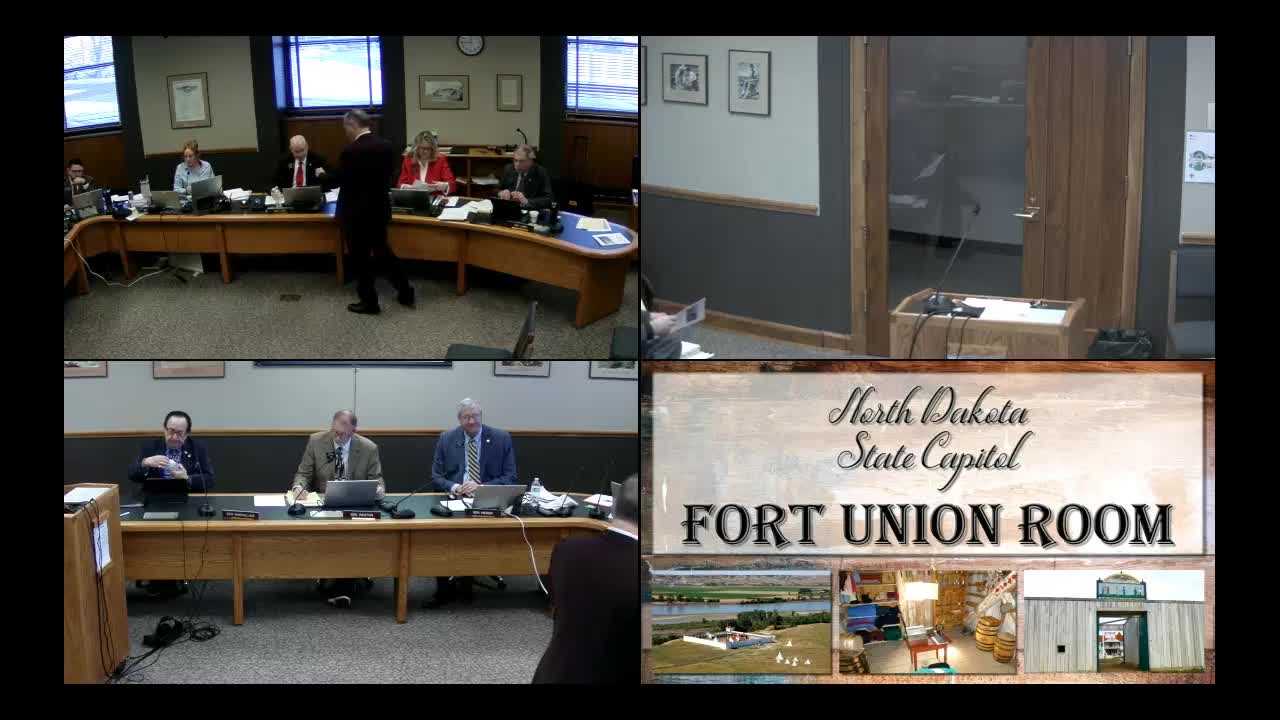Committee backs bill to create state burial medallion for National Guard and reserve members
Get AI-powered insights, summaries, and transcripts
Subscribe
Summary
The committee recommended a do-pass for House Bill 12-93, which would authorize a state-produced burial medallion for North Dakota National Guard and Reserve members not eligible for VA markers; the Department of Veterans Affairs would design and approve the medallion with stakeholder input.
The Senate Agriculture and Veterans Affairs Committee gave a do-pass recommendation to House Bill 12‑93, a proposal to create a North Dakota burial medallion for National Guard and Reserve members who are not eligible for U.S. Department of Veterans Affairs headstones or markers.
Representative Steve Vetter, R-District 18, introduced the bill and said it would “allow national guard members to have burial markers like other branches of the military.” He said the change aims to provide parity of recognition for Guard and Reserve personnel buried in private cemeteries.
Lonnie Wong, commissioner of the North Dakota Department of Veterans Affairs, testified the medallion would be available to North Dakota National Guard and Reserve members who are not otherwise eligible for VA National Cemetery Administration markers. “The medallion would be designed and approved by the North Dakota Department of Veterans Affairs, Administrative Committee on Veterans Affairs and North Dakota National Guard and Reserve representatives,” Wong said, adding that the department would aim to produce a weather‑resistant design that can be affixed to stone headstones.
Wong said the bill would not automatically provide retroactive medallions at no cost because the department cannot yet estimate how many existing graves would qualify; families of deceased veterans might be offered a medallion for a cost if they request one. He noted that medallions provided by the VA are affixed to privately purchased headstones and that the state medallion would serve a similar purpose for those not eligible under current federal markers.
Committee members asked practical questions about burial at the Mandan State Veterans Cemetery, spouse interment, and design elements of medallions. Wong confirmed spouses can be buried with veterans in the state cemetery, and discussion clarified prior work to waive spouse burial fees at Mandan.
After testimony, the committee moved a do-pass recommendation; the roll showed affirmative votes from members present. There was no recorded opposition during the hearing.
Ending: The committee closed the hearing and advanced HB 12‑93 with a do-pass recommendation; legislative sponsors and agency staff said design, production and any retroactive distribution would be handled through administrative processes if the law is enacted.
